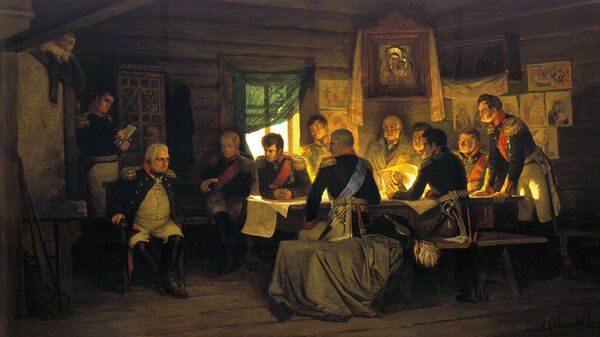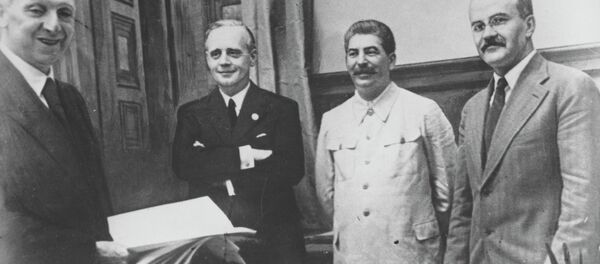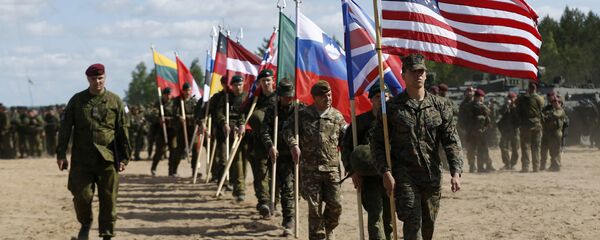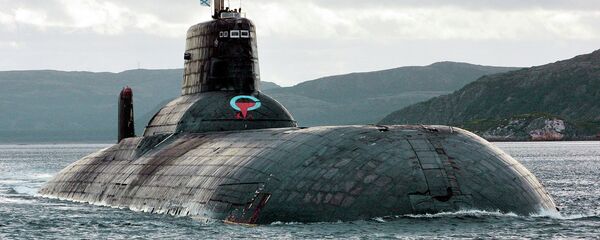"Everyone is sick and tired of the denigration of the history of Russia and the Soviet Union," Yevdokimov writes, in a reflective article for independent Russian newspaper Svobodnaya Pressa.
"So let us, at least for the scope of a single article, forget about the mistakes and missed opportunities of our country's distant and recent past," the journalist proposes. "Undoubtedly, controversial decisions were made at various moments in Russian history, but there were also undeniable victories, thanks to which Mother Russia lives on, to the delight of friends and to the sorrow of its enemies."
Yevdokimov presents five crucial political and military decisions from three centuries – three epochs of Russian history, from the Russian Empire to the Soviet Union to contemporary Russia, "which ensured the country's salvation at its most critical moments…when it seemed that nothing could have saved the country, not even the heroism and courage of its people." Readers might find some of Yevdokimov's assessments surprising.
1812: Kutuzov's Withdrawal From Moscow During the War With Napoleon
Mikhail Kutuzov, the Russian Field Marshal credited with ensuring Russia's victory during the French invasion of Russia, "was forced to deal with a very difficult dilemma after the draw in the Battle of Borodino. At stake was the ancient, first-throned capital of the country – Moscow, the city of '40 times 40 churches', luxurious manor estates and merchant courtyards," the journalist recalls.
"In case of withdrawal, all, or most of the city's enormous wealth, accumulated over generations, would find itself in the hands of the cruel-hearted enemy. And the enemy was no less ferocious than the fascist invaders of a century later. It was simply unthinkable that the heart of the country might be given over to the Bonapartist extremists, who would likely create a barbaric massacre – a real ethnic cleansing. But there was no other alternative."
"Napoleon likely really believed that the Russian Army at the gates of the Kremlin would prefer to fight to the last cannon ball. And indeed, our soldiers were ready to go to their deaths for eternal glory, but a wise Kutuzov persuaded his comrades-in-arms that in losing Moscow, Russia itself would not be lost."
"At the famous meeting in Fili, he found himself in the minority, although he likely hoped to split the responsibility with the other generals. But not everyone could keep their composure when the fate of their beloved motherland was at stake, so Mikhail Kutuzov, as befits a truly great commander, took full responsibility on himself, and the army withdrew, in order to win in the end."
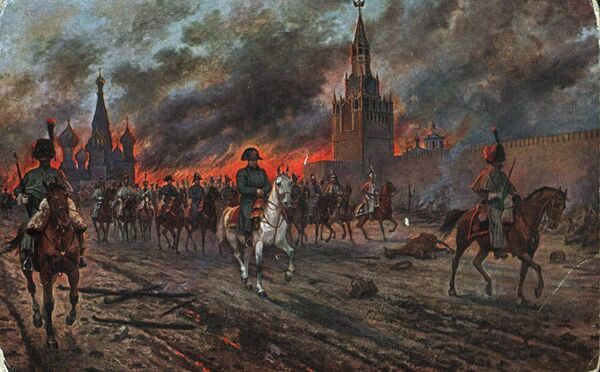
"All the horrors which Muscovites had to endure during the occupation – everything that was stolen or destroyed of Russia's national heritage by the foreigners from Napoleon's 'European Union' – all this was a terrible price to pay for the country's salvation. Thousands of innocents killed by the Bonapartist soldiers were factually sacrificed on the altar of the coming victory."
"It's surprising," Yevdokimov quipped, "that no one ever blames Kutuzov for these victims, while everyone and their grandmother blames Joseph Stalin for the victims of the militias and the Podolsk cadets who came to stand on the path of the invaders, this time in the 20th century. In his time, Stalin made no less difficult a decision, which also turned out to be correct – to stop the enemy at any price. In 1941, Moscow was not only the Soviet Union's largest city, and its cultural center, but also a critical industrial and transport hub, and most importantly, the capital. Here, Kutuzov's cunning was not an option."
1918: The Treaty of Brest-Litovsk With the Kaiser's Germany
"Vladimir Lenin's signing of the Treaty [of Brest-Litovsk] was criticized by everyone – from ultra-communists like Nikolai Bukharin to the most reactionary monarchists," the commentator recalled. "What is more, at that moment, he appeared to have lost the Bolsheviks gains, won following the October Revolution of 1917, because the Treaty became the basis of an attempt by the Left SR party to stage a coup in the Congress of Soviets. And it seemed as if everything that was possible was done in order to push Germany to break the pact – with Chekist SR terrorist Yakov Blumkin killing Germany's ambassador Wilhelm Mirbach" in 1918, shortly after the treaty's signing.
"But the plan failed; the coup against the Bolsheviks was quashed, and soon, when revolution broke out in Germany, even the strongest of Lenin's rationally-minded critics realized that what he had done was a stroke of genius. Sacrificing so much, finding himself even more a minority than Kutuzov, Lenin agreed to the most onerous conditions, in order to save the young Soviet republic. Factually, the anger in his direction from the counter-revolutionary elements in those years came largely from the fact that he managed to save the fragile new state from the Kaiser's boot."

"It's true, Germany's terms were more than merely harsh, but it was the Czar and the provisional government which had brought the country to the situation," Yevdokimov notes. "At the same times, the Bolsheviks' predecessors had left them with a completely demoralized, half-destroyed army; to continue the war in such a situation would have been suicide."
1939: The Non-Aggression Pact With Nazi Germany
"The Great Patriotic War was won even before its tragic beginning on August 23, 1939, when Joachim von Ribbentrop, the Third Reich's Foreign Minister, made a fatal mistake, persuading Soviet leaders to sign a non-aggression pact," Yevdokimov writes.
"In addition to delaying the outbreak of hostilities between the world's two leading military powers, the pact allowed for the Soviet Union's western border to be pushed as far to the west as possible."
"In such a situation, the miraculous failure of Hitler's blitzkrieg might not have occurred. It was precisely the distance of the fatherland's western borders from Moscow that prevented the fascists from breaking through to the Soviet capital in the warmer months. And while the German tanks were breaking through the lines of defense and got stuck in impassable roads, the Soviet leadership was able to evacuate a huge portion of the country's important industries, together with its personnel."
"All of this was ensured by Ribbentrop's signature in 1939; without his help it would have been much more difficult to carry out the evacuation two years later. With the stroke of a pen, Ribbentrop did the Soviet Union another important service – alienating the Reich's main overseas ally – militarist Japan. It was in August 1939 that Tokyo last got its nose bloodied by Soviet and Mongolian troops in the legendary Battle of Khalkhin Gol, where General Giorgi Zhukov's star came to shine; six years later, Zhukov would sign a new agreement with Nazi Germany – on its unconditional surrender."
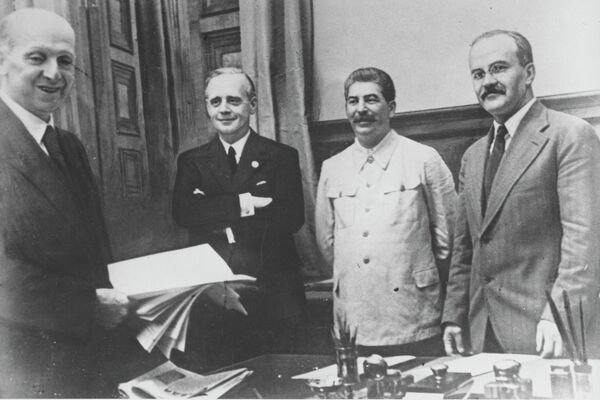
Ultimately, Yevdokimov writes, the non-aggression pact "was not just a success for Soviet diplomacy, but a triumph. Even the secret protocols could not tarnish the Stalin leadership…Hitler had made a colossal blunder, giving his main enemy a chance, at least in part, to rearm."
1950s-1970s: Attaining Nuclear Parity With the United States
"Everyone would have been happy if all the state's resources could be turned to restoring that which had been destroyed. But it so happened, that if major assets were not devoted to the defense sector, a repeat of June 22, 1941, only in a much more terrible form, would have been inevitable."
"We can speak about this with more and more certainty, as more and more documents from the US archives from the post-war years become declassified. They indicate that Soviet fears about the possibility of new, nuclear war were not at all unfounded. The debate among hawks in the Pentagon concerned only the time frame and the number of bombs which would be required to destroy our country and its allies."
"Recently," Yevdokimov recalled, "another list of cities in the Soviet Union and other socialist countries to be targeted for atomic bombing was released from the archives. The plans showed that not only Moscow and Leningrad, but Berlin and Beijing as well, were set to be wiped from the face of the earth. What's more, the purpose of the strikes was stated openly: to destroy the population of the Soviet bloc; everyone, including women, children and the elderly, was seen as an enemy to be destroyed."
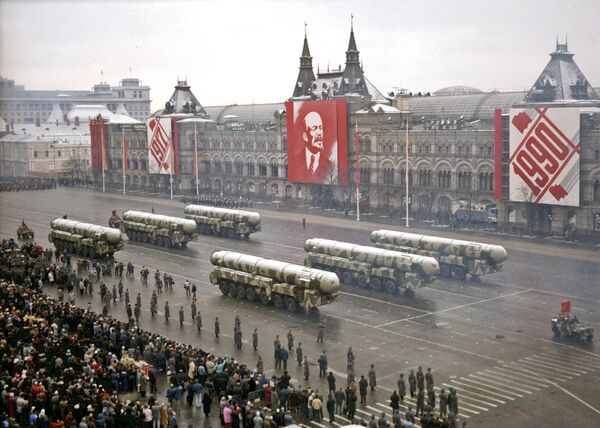
2014: Crimea's Reunification With Russia
"It's not difficult to guess the disaster that Russian authorities prevented, when they made their decision, based on the outcome of the Crimean referendum of March 16, 2014. It's enough to watch the video chronicle of what happened in Odessa, when opponents of Maidan's Brownshirts were burned alive, or in the cities, towns and villages across Donetsk and Lugansk, destroyed by Ukrainian aviation and artillery."
"As in the above-mentioned historical cases, neither the people of Crimea, who voted overwhelmingly in favor of reunification with Russia, nor Russian legislative and executive authorities, who supported the decision, had any other choice. Otherwise, collisions much more terrible than the ones we have witnessed in southeast Ukraine could have occurred."
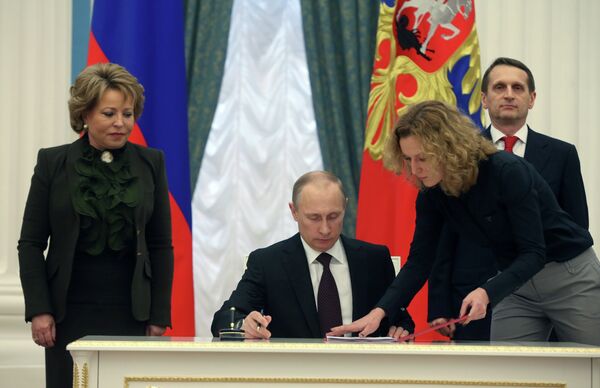
"Moreover, in this case, there was a tremendous risk of a direct clash between two brotherly countries — Ukraine and Russia, provoking a massacre, something that the Banderite militants openly threatened."
Ultimately, Yevdokimov argues, "were it not for outside interference on the part of the West, which openly took the side of the Kiev junta, everyone would already forgotten that Crimea and Sevastopol – soaked in the blood of Russian soldiers and sailors [over centuries], had once again become an inalienable part of Mother Russia."
In the final analysis, the journalist notes, "we would all be happy if the decisions of the type mentioned above were taken every time, but unfortunately, that is unrealistic, since no one is immune from making mistakes. Moreover, one might dream that the correct decisions were not so complex, and that they could be taken in a stable and calm environment, rather than a critical moment. Alas, that too is something one can only dream of."
